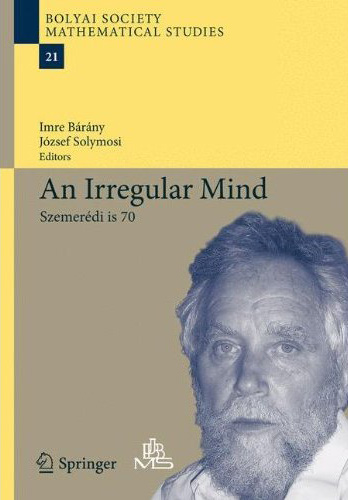Mathematician’s ‘irregular mind’ scoops Abel award
March 22, 2012 | Source: Nature News
An “irregular mind” whose brain is “wired differently than for most mathematicians” is what has won this year’s Abel Prize, one of the most prestigious awards in mathematics, for Endre Szemerédi of the Alfréd Rényi Institute of Mathematics in Budapest.
Szemerédi was awarded the prize, worth 6 million Norwegian kroner (about US$1 million), “for his fundamental contributions to discrete mathematics and theoretical computer science, and in recognition of the profound and lasting impact of these contributions on additive number theory and ergodic theory,”according to the Norwegian Academy of Science and Letters, which awarded the first Abel prize as a kind of mathematics Nobel in 2003.
Discrete mathematics deals with mathematical structures that are made up of discrete entities rather than smoothly varying ones: for example, integers and point networks.
Nils Stenseth, president of the academy, who announced the award, says that Szemerédi’s work “supplies some of the basis for the whole development of informatics and the Internet. He showed how number theory can be used to organize large amounts of information in efficient ways.”
He connected number theory to graph theory, the mathematics of networks of connected points. The connection is most famously revealed by the four-color theorem, which states that it is possible to color any map (considered as a network of boundaries) with four colors such that no two regions with the same colour share a border.
Szemerédi and his Hungarian collaborators Miklós Ajtai and Janós Komlós discovered an optimal sorting network for parallel processing in 1983, one of several of Szemerédi’s contributions to theoretical computer science.

